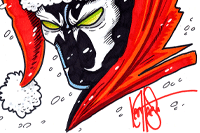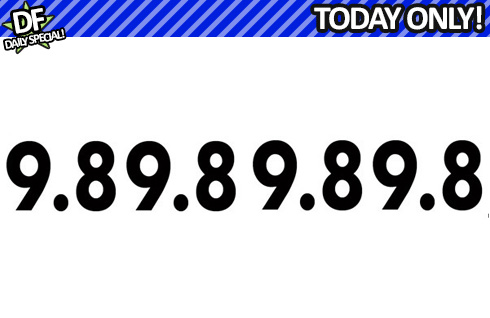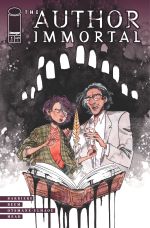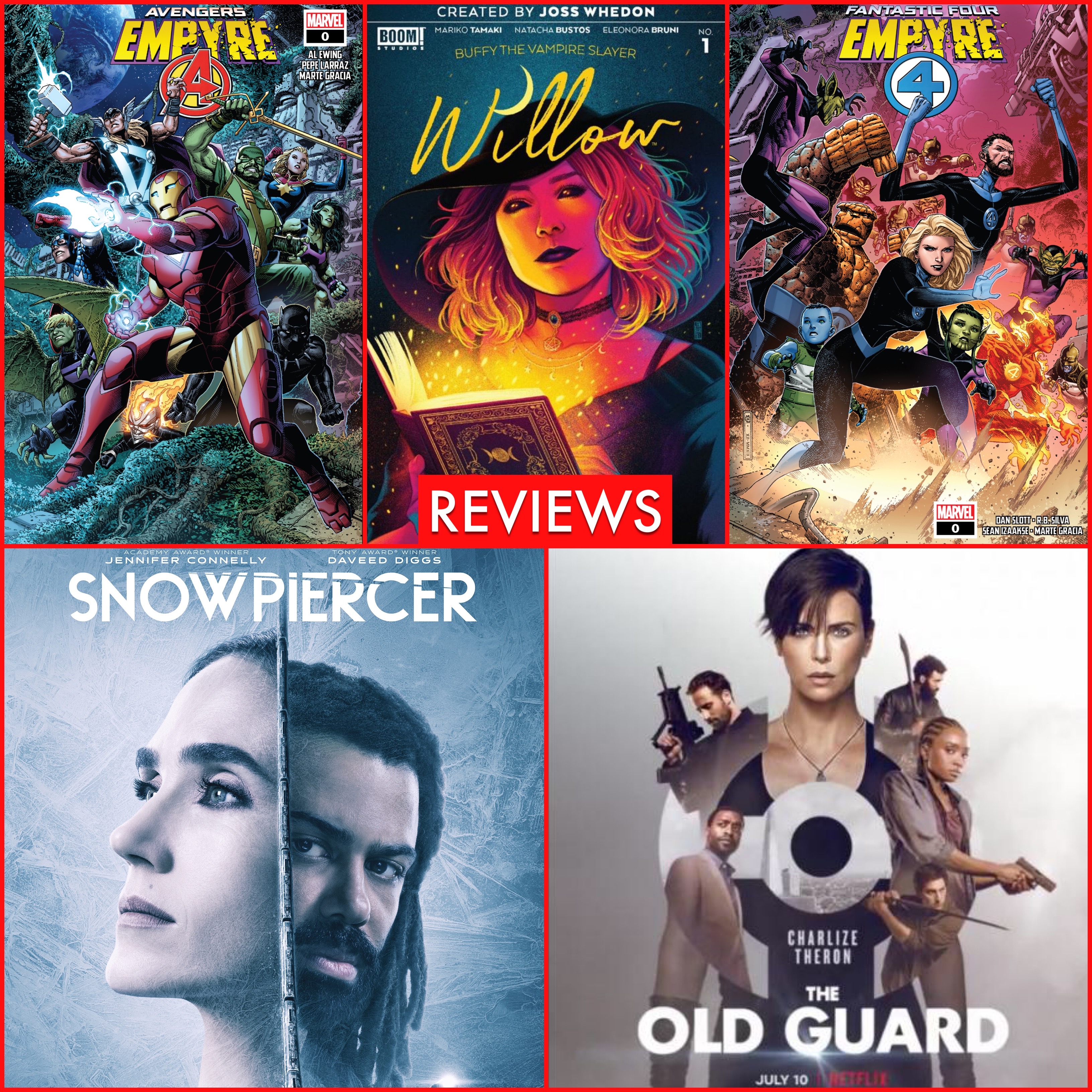PHILLIP KENNEDY JOHNSON
 SEND THIS TO A FRIEND! SEND THIS TO A FRIEND!
DF Interview: Phillip Kennedy Johnson writes of dark reinvention during the COVID-19 pandemic in crime thriller ‘Crocodile Black’ By Byron Brewer What makes someone turn to crime… especially in a modern, pandemic-riddled dystopia? Danny, a seemingly mundane young man lost in escapism, with a spiraling lack of control over his life, witnesses something during a delivery job that will change him forever, turning things as dark as the black, crocodile skin boots that he can't take his eyes off of… In this crime thriller from Eisner-nominated writer Phillip Kennedy Johnson (Action Comics) and artist Somnath Pal (Brigands), the morally gray turns to cold-blooded murder. I sat down with scribe Phillip Kennedy Johnson to discuss the coming comic. Byron Brewer: Phillip, I am fascinated by your study of life reinvention in Crocodile Black. And the pandemic was certainly a catalyst for many. Before we hit the book and characters proper, talk a little about your own observances – or your own actions – during the pandemic dealing with taking life-altering steps, for better or worse. Phillip Kennedy Johnson: What I remember most from that time was the uncertainty. Nobody living had been through that before, and nobody knew where it would lead, whether the world would ever go back to “normal” or what aspects of life were gone forever. For me, all other concerns were drowned out by my need to keep my son safe, physically and psychologically. I’ve known plenty of people who were profoundly impacted by hard times they’d been through… wartime service, the Great Depression, those kinds of things. I didn’t want my son having lifelong negative traits that he picked up in my care during this weird, stressful time. Practically every action I took and decision I made was in service of keeping my boy safe, secure, healthy, happy, moving forward in school. There was even a performative element to it on my part, as I tried to keep his stress and fear of the outside world relatively low. That was how my life changed during that time. Regarding the world outside of my own, I also remember when people started leaving their entry-level jobs or college programs en masse, often to pursue the exciting or risky thing they always secretly wanted to do. I was impressed and moved by that. That phenomenon was one of the critical pieces that came together in my mind to become Crocodile Black. Byron: Introduce readers to Danny. If you can, describe what his life was like before his path toward reinvention and how he approaches that in his own life in the book. Phillip Kennedy Johnson: When we meet Danny, he’s pretty aimless. He’s a guy in his mid-20s with no skills, no experience, no college hours, no prospects, no plans, not even any control over his own life. He hates his life and hates where he is, but doesn’t see any choices except to live where he’s living and do what he’s doing. When Covid hits, he’s living with his parents and delivering groceries through an app. One day he makes a delivery to an old man’s house, and finds the man dead in his armchair, cigarette still burning between his fingers, wearing a pair of black crocodile skin boots. He doesn’t tell anyone, and goes home still carrying that thrilling secret… FINALLY he has something in his life that’s just for him, that nobody knows but him. And this time, when his dad comes at him at dinner and they get into yet another fight, he finds the initiative to tell him off, get up and leave. He walks across town in the rain, finds his way back to the old man’s house, puts on the boots, and starts settling into the old man’s life and imagined identity. In the days and weeks that follow, that man’s identity becomes Danny’s mask, and he starts his journey towards becoming the person he’s always secretly wanted to be: a dangerous man. Byron: Crocodile Black. I love this title and was wondering about it long before I read solicits. Captivating. Without spoilers, can you tell about the titular objects, from whence they come, and how it becomes a focal point of your protagonist’s metamorphosis? Phillip Kennedy Johnson: The words “Crocodile Black” have a couple of different meanings in the book, one of which I shouldn’t spoil. But the clearest meaning is a reference to the black crocodile skin boots Danny finds. For reasons Danny doesn’t understand at first, the boots completely captivate him. He can’t stop thinking about them. Over the course of the series, the reader will learn more and more about the trauma Danny’s carrying, the repressed memories his mind has been hiding from him, and how they’re brought back to the surface by those boots. Byron: Are there any other characters important to the book that you could spotlight here briefly? Phillip Kennedy Johnson: The most important character in the book is a dead man: Leo Black, the boots’ original owner. Once Danny “inherits” the boots, he starts reading Leo’s journals, going through his old photos, wearing his clothes, sleeping in his bed, wearing Leo’s whole identity like a mask. He imagines Leo as much more interesting and dangerous than he might have been, and comes to embody that identity himself. Who Leo Black actually was is a mystery that will slowly reveal itself, at least in part. But in a way, the Leo that Danny imagines is a much more powerful presence in the story than the real Leo. Byron: I do not know of anyone who does not have deep feelings about the pandemic of such a short time ago, whether or not they suffered from Covid. Talk about using the time period as a canvas for this crime story and how – as it seemingly did in real life – it becomes almost its own character of sorts. Phillip Kennedy Johnson: During Covid, I was surprised how little acknowledgment I saw of it in the comics of the time. Everyone seemed afraid to show characters wearing surgical masks, or to reflect the current distancing guidelines, or any of the other huge changes to day-to-day life that were happening. Everyone on the page seemed to be from a bygone time… standing much too close together, unmasked and oblivious. I wanted to see more books that reflected the time we were living in. Now that restrictions have lifted so much, Crocodile Black feels more like a period piece, but it’s still an important story for me to tell. I have a lot to say about trauma, and about the power of masks… of the freedom you find when you can see others but they can’t see you. Byron: Those who know your comic book works (Superman, Incredible Hulk, 007) may not know, for whatever rock they might have been under, that you are also a musician. Tell readers a little about that world and do you ever use music in your comics writing? I know several writers who design playlists as they plot and craft a book. Is there a Crocodile Black playlist? Phillip Kennedy Johnson: One of the things about comics that most drew me to the medium is the collaborative nature of it, and how familiar that felt to me as a musician. Making comics feels like small group jazz to me, in which every member of the team plays a crucial role, and replacing any one person profoundly impacts everyone else’s contributions. Or should, at least, if everyone is plugged into the work as much as we should be. I think my music background has made me a better, more responsive collaborator than I might have otherwise been. And yeah, I do like to write music and poetry for my stories. That was something I always took note of in Tolkien’s works, and it’s something I like to do for mine. It’s a kind of signature I try to add to all of my stories, if it remotely makes sense to do so. I don’t listen to music very often as I write… it’s hard for me not to be distracted by it. But I did sometimes listen to John Williams as I wrote Superman, or to the various Alien scores as I wrote Alien. The few moments I’ve spent listening to music while writing Crocodile Black, I think I was listening to my LP score of The Last of Us. Byron: Wow. Very interesting!… Talk about your collaboration on Crocodile Black with artist Somnath Pal. Phillip Kennedy Johnson: Som is a shockingly talented artist, with amazing storytelling instincts and an instantly recognizable visual style. I’m thrilled to introduce him to Western comics with Crocodile Black. When I first discovered Som’s work, a signature element that I saw in a lot of his work is the intrusion of the grotesque onto reality. Many of his pieces depict a beautiful person or people, but with some kind of supernatural intrusion or mutation happening, something that gives the piece a very unmoored, unsettled feeling that I was instantly drawn to. When the premise for Crocodile Black came together, Som’s name came up very soon thereafter, and I think we all knew immediately that he was the perfect fit for it. A story about suppressed trauma, about a disturbed guy slowly feeling his identity being replaced by a monster? So much of Som’s work already embodies that feeling. I’d have been a fool not to work with him on this project. Byron: Phillip, what other coming projects, inside or outside comics, can you tell readers about? Phillip Kennedy Johnson: Oh, man. In addition to my beloved Incredible Hulk and Green Lantern: War Journal, I have several new projects I’m beyond excited to talk about but it’s a little too soon. I’ll tease them a little: I’m working on several short stories for “Big Two” characters I’ve never written before, with terrific artists I’ve never worked with, which makes the collaborations really fresh and exciting. I’m in the early stages of a horror-themed one-shot that I intend to make the most vicious, terrifying thing I’ve ever written. And I’m writing a miniseries and maxiseries that are honest-to-God bucket list projects of mine… two MASSIVE swings that I think DC and Marvel fans are going to really respond to. And as soon as those are done, I have several more creator-owned projects that are already breaking down the walls of my mind trying to get out. But right now, it’s all about Crocodile Black, making it the best, most haunting, most memorable story we can tell. I know exactly how fortunate I am to work with a creative team like this, and we’re not wasting a single panel of this story’s potential. Do Not Miss. Dynamic Forces would like to thank Phillip Kennedy Johnson for taking time out of his busy schedule to answer our questions. Crocodile Black #1 from BOOM! Studios is slated to be on sale May 8!
NEW! 1. 09/23/2025 - FRANK BARBIERE2. 09/16/2025 - RODNEY BARNES 3. 09/10/2025 - ZACK KAPLAN 4. 08/26/2025 - JOE PRUETT 5. 08/20/2025 - CHRISTIAN WARD Show All |






.jpg)

